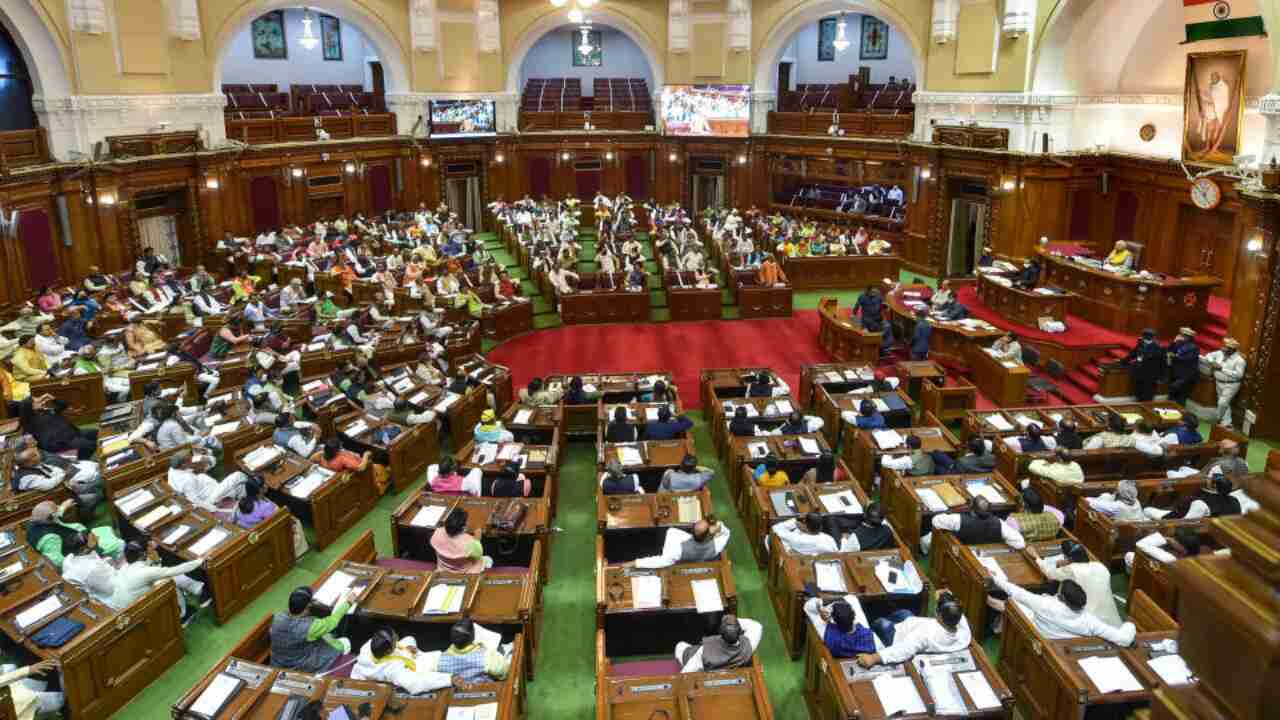Educating the lawmakers
A national framework for training and capacity building of legislators is the need of the hour, and technology can be used as leverage

Recently, the Ministry of Panchayati Raj, Government of India, has constituted a committee to prepare a national capacity-building framework to guide training institutions to build the capacity of the elected representatives. It is a welcome move. But I am tempted to ask a pertinent question from the Ministry of Parliamentary affairs whether it has any proposal for devising a national framework of capacity building for the members of Parliament and members of state legislatures. If the answer is negative, then why serious thought is not being given to build the capacity of the MLAs, MLCs and MPs numbering around 5,000 — who spend a large chunk of the national income through their decision. The elected representatives aren't consciously trained to handle the Legislative and Parliamentary institutions. Unless elected representatives are not trained properly to perform their duties and responsibilities, respective institutions will witness only veritable pandemonium and meaningless verbal accusations against each other, resulting in poor outcomes in the houses. The aspiring candidates come to legislatures and the Parliament, not with the passion of performing their roles and responsibilities but to acquire power through the membership to perform many activities by relegating the core function of serving people through meaningful legislative transactions as we gather from research findings. It is also a truism that there is no training institution to train or build the capacity of legislators as we see in some of the countries in the world. Day in and day out, research studies are revealing the poor quality of performance of the members of the Indian Legislature and parliament.
75 years into a Parliamentary democracy and yet we are not reaching the level of maturity required for the successful conduct of legislative bodies. Hence, it is time to introspect our functioning of legislature and the Parliament respectively. For long, it has been debated that India needs a strong and vibrant training institution to build the capacity of the elected MPs and MLAs. Yet, we have hardly taken any initiative in this direction. Our investment in building infrastructure has been increasing enormously, both at the federal and state levels but there is no substantial investment capacity-building. Sophisticated buildings, luxurious houses, and other perks given to members will not build the capacity, and will not use their full potential in using Parliamentary and legislative procedures to put forth the demands of their constituencies and, thereby, enabling the bodies to arrive at meaningful decisions and policies. At present, the world has witnessed an unprecedented transformation due to the communication and information technology revolution, which requires more systematic thinking and deeper analysis of issues. To cope with the change, elected representatives need more rigorous training and an enabling environment to perform their tasks professionally and achieve the targeted goals. Training will enable them to have contact with knowledge institutions around the world and provide them with the advantage of getting input from advanced global research institutions.
The leading research and training institutions in the West specializing in representative democracy could be of much use for us in training our representatives. The best Parliamentary and legislative practices can be learned from those institutions and that kind of exposure will enable the representatives of the people in parliament and Legislature to do meaningful innovation and reform in Legislative and Parliamentary practices in India. Most of our members are only enjoying the Parliamentary and Legislative positions rather than using the opportunity to make meaningful sober, matured, well-prepared and transformative discussions in the houses. They enjoy the power of membership but are conscious only of their personal and party affairs and not their constituency. Members spend less time on house activities and more time on party and constituency affairs. To ensure substantial allocation of time to house activities by the members, they need to be made conscientious in a passionate and committed manner. It is not just about individual work; they work collectively as a group as the party is represented in the house. Hence, participation in the legislature and the Parliament is a serious activity that will enhance the quality of Parliamentary democracy. Now the house activities have been made non-serious day by day, and the time allotted for legislative functions is drastically reduced. In the evolutionary process, the deliberative and representative democracy has to move from the present stage to a higher form through innovative and reformative legislative activities. The quality of democracy is going down as the Parliamentary and legislative practices are losing their charm and importance in public perception. In order to cure the maladies, what we need is an innovative capacity-building exercise for our legislators. And for that, a training institution has to be set up with less investment, but it should be innovative. Normally, when we think of institutions, we have the imagination of constructing huge buildings, recruiting great human power by investing huge outlays with maintenance costs. In the age of technological advancement, with less investment and without having huge buildings, we can create massive operational platforms, for which a thought leader has to be identified and work has to be assigned accordingly. It can be done very easily with passion and excitement — improving, at the same time, Parliamentary practices. Unless very serious thought is given to this subject, we will remain a part of a decaying Parliamentary democracy. Hence, new thinking is needed on the part of the government to build the capacity of our elected representatives in state legislatures and Parliament.
The writer is a former Professor and Rajiv Gandhi Chair for Panchayati Raj Studies, Gandhigram Rural Institute. Views expressed are personal



